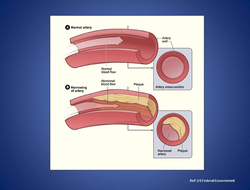Women: How heart smart are you?
Published: February 18, 2022
There is a general tendency for people to take their health for granted.
Many people only become aware of health issues when experiencing some serious negative health event.
We all experience minor health events from time to time such as colds, flu, gastrointestinal disturbances, and physical aches, pains and trauma: we deal with them and they go away.
However, when it comes to major health issues such as heart disease we perhaps become complacent about, or even deny the possibility that we may be a possible candidate.
A family history of cardiovascular disease is not necessarily enough to prompt individuals to take proactive steps to decrease their risk of heart disease or stroke.
You are probably conscientious about wearing your seat belt in a car or plane, wearing a helmet if you cycle, pay attention when crossing a road, and take precautions when walking alone in unpopulated areas at night.
But what protective actions do you take for your long term heart health?
For many years it was thought that women, in general, had a lower risk of heart disease than men.
However, it is now recognised that post-menopausal women have the same risk of heart disease as men.
in additon, the increasing number of women who smoke and consume alcohol may be contributing to an increased incidence of heart disease in women.
Many women in Canada and the United States are not aware that cardiovascular disease (CVD) is the major cause of death for women accounting for almost 30% all deaths in women: a similar number to CVD in men.
This unawareness may lead to underdiagnoses of heart disease leaving many women less likely to seek medical attention or screening for CVD.
CVD is not limited to older populations and is being diagnosed in younger populations.
Many children who are overweight or obese are being diagnosed with altered blood lipids, hardening of arteries, and hypertension: all associated with increased risk of heart disease.
In Canada, one third of children ages 5 - 17 are overweight or obese and while some children may be diagnosed with heart disease, many children go undiagnosed.
Young women (and men) may enter adult hood with the beginnings of heart disease.
Similar trends have been identified in the US, UK, and Australia.
While many of the factors which affect men’s heart health also affect women’s heart health there are subtle differences in prevalence and potential risk factors..Link to the full article to learn more about women's heart health.
This is a companion article to the article “Men: How are smart are you?” also published on this website.
References
1.
Whitney, E. & Rady Rolfes, S. (2005). Understanding Nutrition. Belmont, CA: Thomson Wadsworth
2.
Barr, S. I (2007) Human Nutrition over the life span
3.
Gropper, S.S., Smith, J.L. & Groff, J.L. (2005). Advanced Nutrition and Human Metabolism (4thEd.). Belmont, CA: Thomson Wadsworth.
6.
Canadian Society of Exercise Physiologists Annual Conference 2013
7.
Centre for Science in the Public Interest: 09/2011, 06/ 2011, 04/2008, 11,2012, 06/2008,, 09/2007, 11/2011, 05/2008, 08/2012, 04/2012, 10/2007, 04/2007, 09/2010, 10/2009


